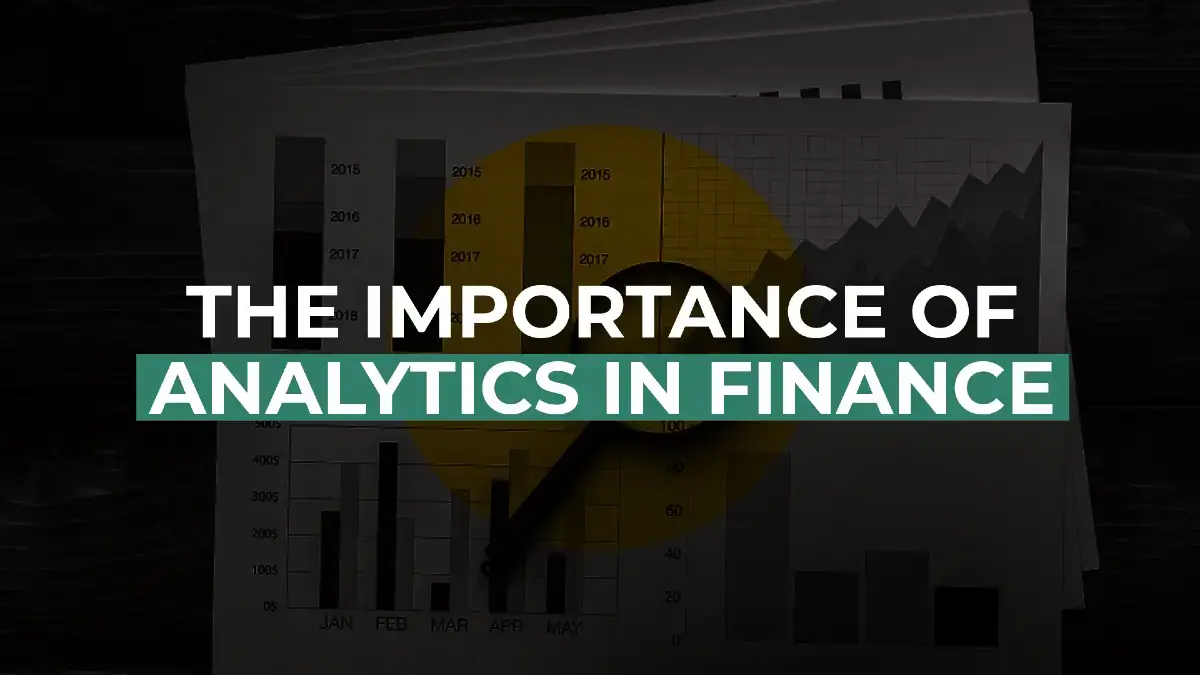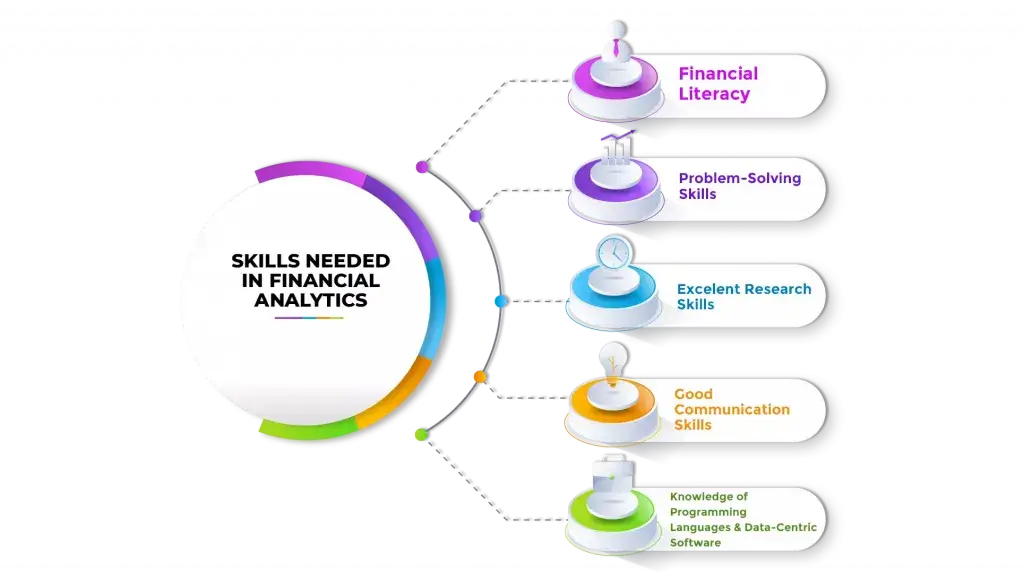10 Game-Changing Ways Financial Analytics Boosts Businesses

Here's What We've Covered!
- What is financial analytics?
- How financial analytics can benefit the finance industry
- 1. Enhances management decisions
- 2. Offers efficient problem solving
- 3. Provides better customer satisfaction
- 4. Enables personalised marketing techniques
- 5. Lowers company cost
- 6. Creates financial analysis models for risks and fraud detection
- 7. Produces accurate predictions
- 8. Monitors the stock markets in real-time
- 9. Improves workflow and productivity
- 10. Leads to more effective budgeting
- Why you should opt for Proschool’s financial analytics course
- In conclusion
The finance industry has seen its fair share of ups and downs. The stock market is volatile, and the economy is erratic. Recessions, market crashes, inflated stock prices, and insider trading… are just some of the lows.
When dealing with such high stakes, you can’t afford to make many mistakes. You need to make decisions based on hardcore facts and intelligent analysis.
Big data now plays a vital role in the future of the finance world. The emergence of financial analytics has transformed this industry. Analysts can use logic, statistics and insights to help banks and financial companies be more profitable and productive.
Analytics in finance is a game changer. Financial analysts can strategically view a company’s historical data and use the findings to make better business decisions.
Big data has proven invaluable once again. And as a financial analysis expert, you have the power to use it wisely and efficiently.
What is financial analytics?
We live in a data-centric world. Businesses have benefited substantially from data analytics. Financial analysis goes one step further and offers specialised analytics for banks, investment firms and wealth management companies.
Financial analytics is a big part of business intelligence. It is a crucial tool that analyses a large amount of financial data to look for patterns and trends. This provides financial businesses with the key information they need to make their next move. Through machine learning, AI systems and advanced analytics, you get a better understanding of how people buy or spend. You also get a clearer picture of financial markets. This enables companies to make smart choices, reduce risks and boost their performance.
How financial analytics can benefit the finance industry
Let’s get down to brass tacks. Exactly how does looking at financial data help companies? What does financial analysis actually do?
1. Enhances management decisions
When dealing with millions or billions, you don’t want to make the wrong move. Market fluctuations can’t be trusted, but data always can. Through careful financial analysis, experts discover specific factors that can impact the business. They can learn, in great detail, the facts and figures occurring in real-time. This ensures that the management can act fast but also smartly. When they have to make split-second decisions, they have the backing of financial analytics and, therefore, a lower risk of failure.
2. Offers efficient problem solving
Before it was possible to use analytics in finance, companies solved their problems in the dark. They lacked the crucial bits of information necessary to create sustainable solutions. This often meant, wrong decisions were made and losses were suffered. Now thanks to data and all its intricate applications, you can examine all the facts and pinpoint the exact area where the problem occurs. You can also use the data to fix the issue so they don’t recur. In some cases, financial firms use financial analysis to solve problems in real-time. So if an issue arises, it is dealt with on the spot.
Did you know, you could easily learn Financial Analytics with IMS Proschool
3. Provides better customer satisfaction
Banks and investment firms need to keep their customers happy at all times. Very often, customers need solutions immediately or require attention urgently. They lack the patience to wait for answers. AI-powered software offers immediate help. Chatbots and virtual assistants are created to assist with simple queries or complex problems. This improves customer satisfaction and ensures loyalty.
4. Enables personalised marketing techniques
Many financial firms have multiple products for their customers. However, all products are not for everyone. To reach out to the right target audience, financial analytics and digital marketing techniques work together to ensure the product meets the right customer. Whether emailers or social media campaigns, you can investigate which demographic will be present on which platform. You can use the right tone, image and message to appeal to the customer. Analytics in finance can help create effective marketing strategies at a much lower production cost.
5. Lowers company cost
Before data, companies would spend millions trying to improve their sales, reach their customers and establish their brands. However, there was no certainty or guarantee that any of their expenses would bear fruit. Today, thanks to financial analysis, organisations have a lot more information to work with. They can figure out which of their efforts see results and which don’t. Funds are allocated accordingly, and budgets are adjusted effectively. It is one of the biggest benefits of using analytics in finance.
6. Creates financial analysis models for risks and fraud detection
Institutions can use financial analytics to detect anomalies or threats. Through advanced analytics, experts can scrutinise multiple transactions and historical data to look for any abnormal activity as it happens. This is especially useful for banks and credit card companies that can track transactions as they occur.
7. Produces accurate predictions
Through careful examination of data, financial analysts can understand the ‘why’ and ‘where’, along with the ‘when’ in relation to market trends. They can help companies make informed decisions and when to make them. Timing is very crucial in the finance industry. Analytics in finance helps you understand the nature of events that occur. When backed by this information, you can make accurate predictions.
8. Monitors the stock markets in real-time
We discussed timing in the earlier point. It is even more vital in this one. The stock market waits for no one. The increase and decrease of stock prices can occur in seconds. Financial analytics can set up monitoring systems to help you track the trajectory of shares as they rise or fall. Investment advisors can benefit from split-second decisions as they are consistently aware of the market’s movements.
9. Improves workflow and productivity
You can use financial analysis to optimise the company’s internal performance too.
You can determine the firm’s strengths and weaknesses by analysing the existing data. Financial analytics also monitors how efficient or otherwise the workflow is and introduces automation to speed up processes.
10. Leads to more effective budgeting
The best part about employing analytics in finance is you can efficiently allocate funds. Data records will show exactly how well the budgeting system is working. You’ll see which areas need more funding and which areas need trimming, and act accordingly.
Read – How to build a career in finance industry
Why you should opt for Proschool’s financial analytics course
One of India’s most well-known coaching institutes, Proschool offers an intensive course in business analytics that covers analytics in finance as well. The syllabus is taught by qualified experts who use active learning methods and practical techniques to help students learn better. The Proschool staff understands the demands of the financial industry. They are proficient at helping students to grasp core concepts and technical skills. At the end of the program, you are ready to work in finance as a certified analyst.
Course details:
- You can take a business analytics course or a PGCM in data analytics.
- The faculty members offer personalised attention to every student.
- You can sit for classes in several cities across India or opt for online sessions.
- Proschool offers additional resources for learning, such as videos, mock tests, study prep books, etc.
- You also receive an NSDC certificate with your BA qualification.
- The institute offers placement assistance as well as interview grooming tips.
In conclusion
The finance world has always been a complex maze of numbers and statistics. Well, no more. Financial analytics are transforming the industry as we speak. It is refining processes and optimising business operations. As a financial analysis expert, you can use artificial intelligence and machine learning to improve customer relationships, make data-backed decisions and boost profits. Those who don’t know analytics will be left behind in the dust. Don’t let that be you. Enrol in a course today, and enjoy a vibrant, successful future tomorrow.
Resent Post
>
Best Study Abroad Courses for Commerce Graduates
>
Emerging commerce career options in India (2026): From CA to Data Analyst
>
ACCA Opportunities You Didn’t Know About – Think Beyond Audit!
>
Which Courses After 12th Commerce With High Salary Are in Demand Worldwide?
>
How to Find ACCA Jobs Online After Qualifying: Real Portals, Tips & Career Guidance
Follow Us For All Updates!
One Comment





Excellent article! It effectively outlines how financial analytics can revolutionize businesses by enhancing decision-making, profitability, and operational efficiency.